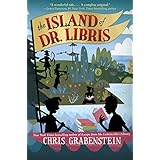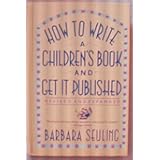Irene and I met through a mutual friend, Pat Weaver, and we have been friends, conference, and retreat buddies ever since.
Irene hosts the Kidlitosphere Progressive Poem each year, which I participated in along with 29 other poets/writers.
She is also the author of several poetry books and children's books.
SR: Irene you have written
three adult poetry books: The Sky Between Us, What Came
Before and The Color of
Lost rooms.
I love those
titles, who came up with the titles?
IL:One of my favorite things to do is
brainstorm titles. :) I came up with all of those, after mining the poems for
powerful, inviting lines or phrases that might represent the collection.
Sometimes poetry books will have a “title” poem, in which the book is titled
after the title of one particularly strong or representative poem. (Both DEAR
WANDERING WILDEBEEST and my 2016 WHEN THE SUN SHINES ON ANTARCTICA are like
that.) The problem with that approach is that it puts a whole lot of pressure
on one poem! I really prefer the former strategy, because then it's like a
great surprise when the reader happens upon that particular phrase or line when
reading the book.
SR: Your debut book "Leaving Gees Bend" came from your quilting
passion. Where did the ideas for "Don't Feed the Boy" and "Dear Wandering
Wildebeest" come from? I love those titles by the way.
IL:Thank you! DON'T FEED THE BOY grew
out of my childhood ambition to be a zoo veterinarian. I served as a teen
volunteer at the Birmingham Zoo, and thought I would someday work in a zoo....
until I witnessed a surgery! That's when I realized I probably should just
write about the animals instead. The book also gave me a chance to explore some
friendship themes from my own childhood and also with a boy main character, to
put a little bit of my 3 brothers and 3 sons into a book!
SR: Speaking of writing about the zoo instead of working there, I read somewhere that you didn't take any formal writing classes. What
would you say to others that want to write but haven't taken classes.
IL: I didn't take a single writing class
in college. I've always been a little hard-headed! I was writing, so thought I
WAS a writer. What did I need classes for? Well. I needed them for just about
everything and then some! And it was so much more difficult to work in that
education AFTER college, when I had kids and a house and a whole buzzing
life... but just like anything, if you want it, you can make it happen. So I
started attending community education classes. I joined SCBWI and formed a
poetry critique group. I studied craft books and attended conferences and wrote
and wrote and wrote! I'm still doing all of those things. Being a writer is an
endless learning curve. Wherever you are on that curve is exactly where you
need to be at this moment. You don't need a degree in writing, but you do need
to practice. And most of all, you need to find your writing community! Sharing
this whole experience with others really is the best part.
SR:
What resources do you find helpful for writing poetry?
IL: Other poetry books! For several years
I have made a study of CYBILS poetry finalists. Each Friday I participate in Poetry Friday Roundup, where bloggers link to their posts
about poetry. Talk about an amazing community with a wealth of information to
share! Also, because I enjoy teaching
poetry, I have a collection of teacher resource books. (A great way to teach
yourself is to teach others!)
SR: I like the idea of following the CYBILS poetry finalist.
What are
working on now? Can you tell us?
IL: I've just completed my
2015 National Poetry Month project
ARTSPEAK! In which I respond to pieces of art and
post a poem each day on my blog. I'll be revising in order to shape some of
those into a manuscript during May.
SR: The artwork is beautiful. I see how studying art can inspire you.
SR: I always have to ask "Are you a plotter or panster?"
IL: A little of both! When writing
fiction, it helps me to know where I'm going, so I usually formulate a simple
logline that shows me point A and point B. Then I allow myself to go wild in
the middle!
For poetry, I usually have to poke
around awhile before I find my way into a poem, and then I really go
exploring. I am often surprised where a poem takes me – I've learned so much
about myself that way. Whether at an African water hole or at the farmer's
market or when writing about my own life, poetry IS discovery. And what joy!
SR: I thought of one more question I wanted to ask before you go: I've noticed that the fiction books you have written must have
required a lot of research.Could you talk a bit about how you did
your research and any tips for nonfiction writers out there. I'm
asking for myself as well.
IL: Yes, all my projects seem to require a lot of research!
And they all start with an obsession. That's really the best tip I can
give -- write about something you are passionate about! Otherwise you
will burn out.
For the poetry collections set in
specific ecosystems that I haven't personally experienced (Kenyan water
hole, Antarctica in summer), the first thing I did was do an inventory
of what has already been written for the children's market about those
places and their inhabitants. Basically, I go to the library, peruse the
shelves, and carry home stacks and stacks of books. :) This is a way to
determine what's missing --- and therefore an interesting angle for my
own work. For instance, there has been much written about Antarctica
when it's at its most frozen (winter). But what about summer? More
specifically, there are lots of books about Emperor penguins and how the
males incubate the eggs during the long, frozen months. But did you
know that because they are so heavy, Emperor penguins can't hop (as some
other penguin species do)? They "toboggan," which means they turn
themselves into sleds and slide! That one fact gave me an "in" for my
poem "Emperor Penguins at Play." It's important to find that bit that
kids will find interesting and that haven't been done and done and
done.
SR: This is all very good information. Thank you so much for visiting today and sharing.











